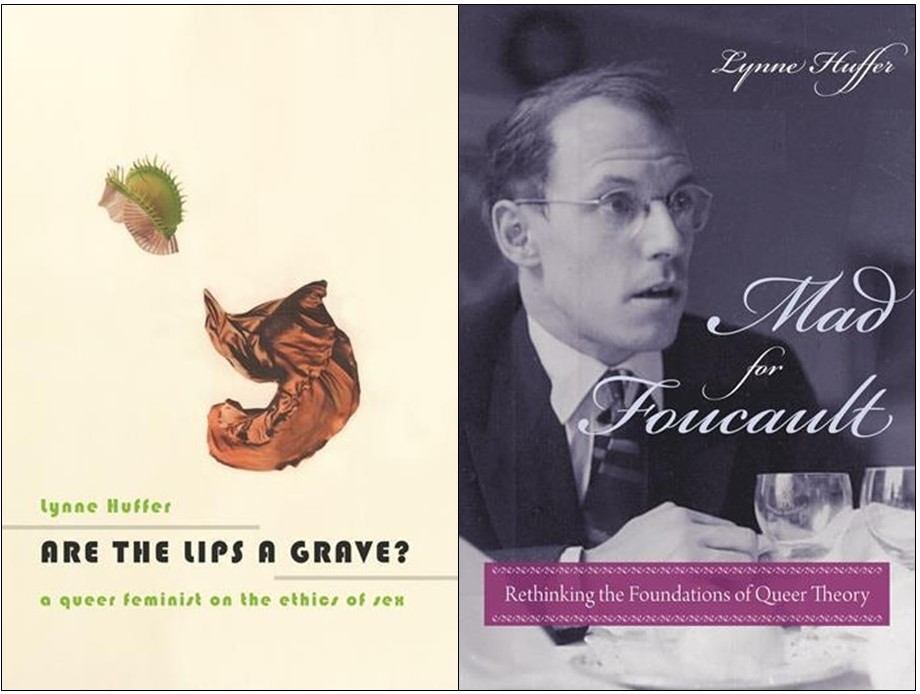Book Excerpts! Mad for Foucault and Are the Lips a Grave?, By Lynne Huffer

As part of our celebration of Women’s History Month, we are featuring Foucault’s Strange Eros, a modern consideration of Foucault’s erotic ethics. by Lynne Huffer. In this forthcoming book, Huffer provocatively rewrites Foucault as a Sapphic poet and shows how Foucault’s poetic archival method offers a way to counter the disciplining of speech. Earlier this week, Huffer gave an introduction to her research and the origin of the word erotic. Since Foucault’s Strange Eros won’t be available until this summer, we are sharing excerpts from Huffer’s previous works of Foucauldian studies: Mad for Foucault: Rethinking the Foundations of Queer Theory and Are the Lips a Grave?: A Queer Feminist on the Ethics of Sex.
Be sure to enter our Women’s History Month book giveaway for a chance to win a free copy and be one of the first to read Foucault’s Strange Eros.
• • • • • •
Mad for Foucault: Rethinking the Foundations of Queer Theory
In the study of Michel Foucault’s theory of human sexuality, scholars have often limited themselves to the History of Sexuality, volume 1 while paying lesser attention to his equally explosive History of Madness. Huffer asserts the importance of reading this work as in the study of feminist and queer theories in Mad for Foucault: Rethinking the Foundations of Queer Theory. In the preface to this work, Huffer tells the story of how she came to study Foucault as a feminist who felt “uneasy about his seeming indifference to feminist concerns,” gives background to the History of Madness and lays out an overview of her stance.
Are the Lips a Grave?: A Queer Feminist on the Ethics of Sex
Huffer focuses in on redressing the rift between feminist and queer theory, traversing the space of a new, post-moral sexual ethics that includes pleasure, desire, connection, and betrayal in Are the Lips a Grave?: A Queer Feminist on the Ethics of Sex. Drawing on the best insights from both fields, Huffer builds an ethics centered on eros, following Michel Foucault’s ethics as a practice of freedom and Luce Irigaray’s lyrical articulation of an ethics of sexual difference. Through these lenses, Huffer examines everyday experiences of ethical connection and failure connected to sex, including queer sexual practices, sodomy laws, interracial love, pornography, and work-life balance. Read this excerpt to for more background on Huffer’s theoretical lenses and an introduction to some fundamental concepts.







